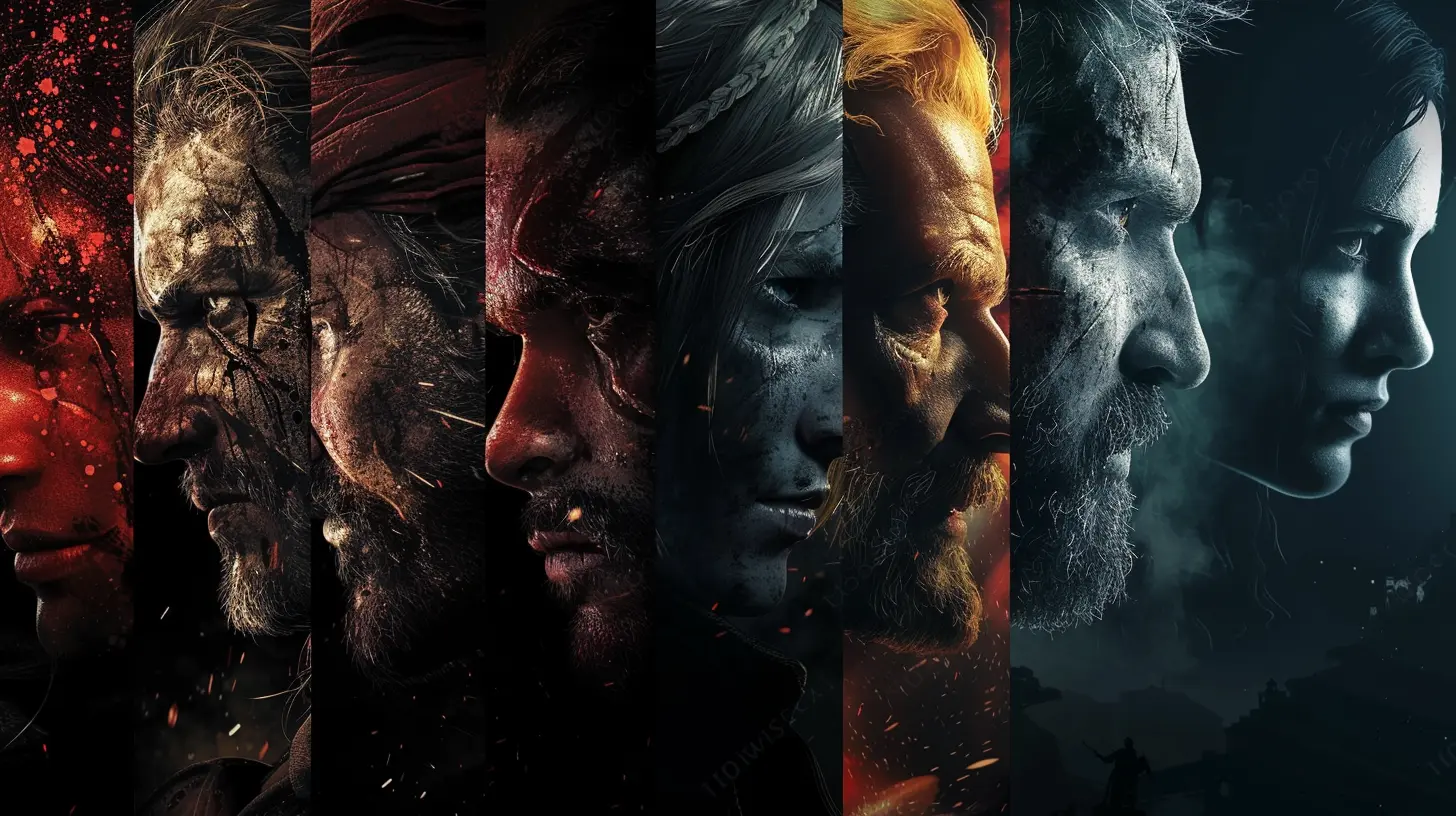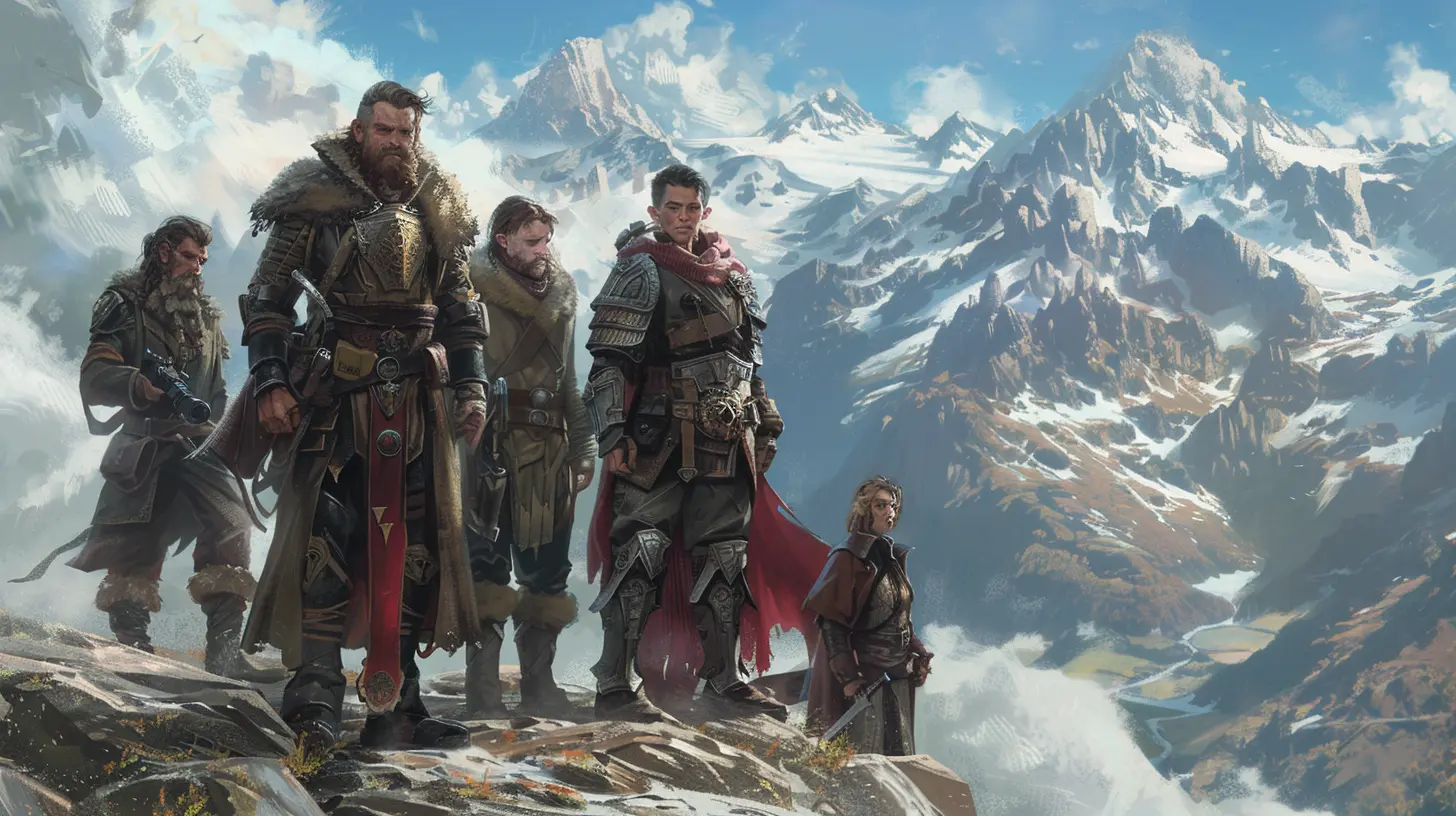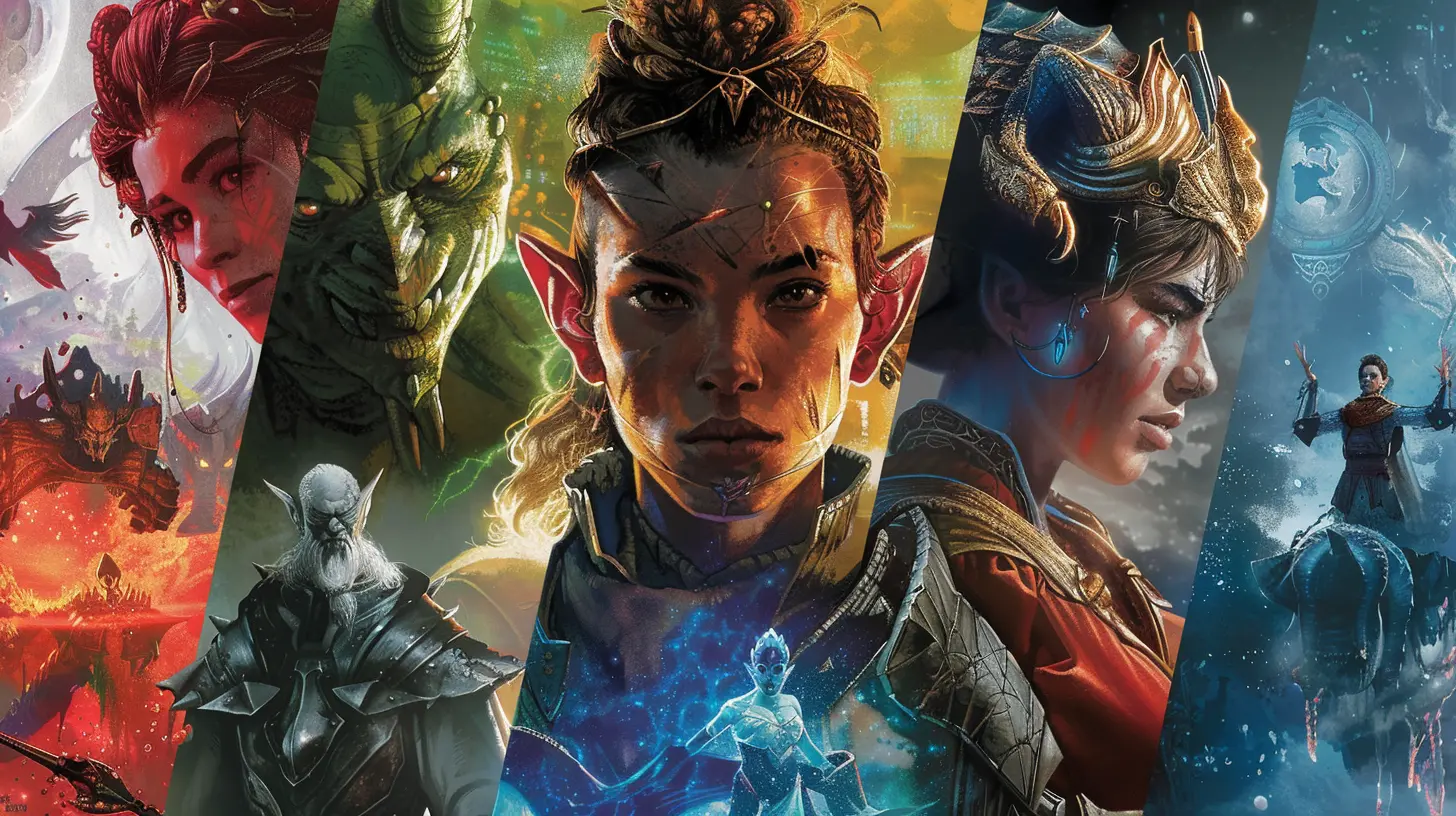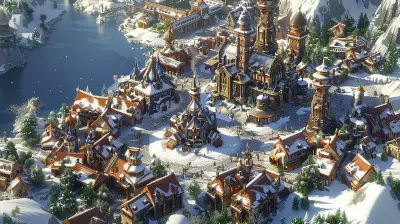The Evolution of Character Progression in RPGs
27 June 2025
There’s something magical about RPGs (Role-Playing Games), isn’t there? You start with a blank slate—an untested warrior, a fledgling mage, or a scrappy rogue—and take them on an epic journey. Along the way, you grow stronger, smarter, and more powerful. But have you ever stopped to think about how character progression in RPGs has evolved over the years? Like, how did we go from something as simple as leveling up stats in an 8-bit game to today’s intricate skill trees and immersive storytelling?
Well, buckle up! We're about to go on a journey through the ages of RPG character progression. By the end, you’ll not only appreciate how far games have come but also realize how these systems have shaped the way we experience stories, challenges, and heroes in our virtual worlds.
The Early Days: Simple Yet Addictive Progression
Picture this: It’s the 1980s, and the gaming industry is in its infancy. You’re sitting in front of your NES or PC, ready to slay your first goblin in a dungeon crawler like Final Fantasy or Wizardry. Back then, character progression was barebones. Kill monsters, gain experience points (XP), and watch your stats go up. Simple, right? But it was addictive!There was something deeply satisfying about seeing numbers grow. Health points (HP) went from 10 to 50, attack damage got beefier, and suddenly you felt unstoppable. It didn’t matter that you were grinding for hours in a pixelated cave fighting the same skeletons. Each ding of a level-up filled you with pride.
Why Did It Work?
Because it tapped into something universal: the love for progress. Humans are wired to feel good about improvement, no matter how small. RPGs nailed this early on, even if the systems were rudimentary.
The 90s: Depth Enters the Equation
Then came the 1990s, and with it, an era of experimentation. Games like Baldur’s Gate, Chrono Trigger, and Final Fantasy VII didn’t just want you to level up; they wanted you to think about how you progressed. For the first time, you had choices—real choices—that shaped who your character became.Stat Allocation and Customization
Remember when games started letting you distribute skill points after leveling up? Strength, dexterity, intelligence—you had to decide where to invest. It was like being handed the keys to a sports car with no instructions. Do you create a glass cannon mage with high damage but low defense? Or maybe a balanced warrior who can both dish out and take hits?These choices made character progression more personal. You weren’t just playing a pre-designed hero; you were building your own.
Classes and Specializations
The 90s also gave us deeper class systems. Games like Diablo II introduced skill trees. Picking a character class wasn’t just about aesthetics—it determined your playstyle. Would your Sorceress reign with fire or freeze enemies with ice? These decisions had long-term consequences, making every progression step feel impactful.Suddenly, RPGs weren’t just about grinding; they were about strategy. And let’s be honest—nailing that perfect build felt like solving a puzzle. When it worked? Chef’s kiss. When it didn’t? Time to reroll and try again.
The Rise of Narrative-Driven Progression
Fast forward to the 2000s, and RPGs began weaving character progression with storytelling. Developers realized: What if leveling up wasn’t just about stats? What if it was tied to the character’s journey? Enter games like The Elder Scrolls III: Morrowind and Mass Effect.Choices That Shaped the World
Take Mass Effect, for example. Your choices didn’t just impact your skill tree—they shaped the story and relationships around you. Renegade or Paragon? Save the colony or let it burn? These weren’t just questions of morality; they subtly influenced your character’s growth. It was progression on a narrative level, and it added emotional weight to every decision.Immersive Skill Systems
Meanwhile, games like Morrowind introduced systems where your abilities improved based on how you used them. Swing your sword? Your blade skill leveled up. Cast fire spells? Your destruction magic improved. It felt natural, like your character was evolving through experience—just like in real life. No arbitrary XP bars, just practice and mastery.
Modern RPGs: Complexity Meets Accessibility
Now we’re in the modern age of RPGs, and wow, the landscape is sprawling. Games like The Witcher 3, Horizon Zero Dawn, and Elden Ring have taken character progression to new heights. But here’s the kicker: they’ve done it while becoming more accessible to players of all skill levels.Open-Ended Growth
One of the hallmarks of today’s RPGs is the freedom of progression. You’re no longer funneled into rigid paths. Want to dabble in multiple skill trees? Go for it. Prefer to focus on one specialized build? That works too. Modern RPGs hand you the reins and say, "Your hero, your rules."Take Elden Ring, for example. You can become a sword-swinging tank, a stealthy assassin, or a pyromancer—all within the same game. The beauty? There’s no “right” way to play. You experiment, fail, adapt, and grow.
Emotional Connection Through Growth
Modern RPGs also marry progression with emotional storytelling. Think about The Witcher 3: Geralt doesn’t just level up his sword skills. His journey feels personal because his choices shape the narrative. Every decision, every skill point, every gear upgrade—it all feels connected to who he is as a character.The Future of Character Progression
So, where do we go from here? As technology pushes the boundaries of gaming, character progression is poised to become even more immersive. Imagine RPGs where your character evolves based on how you interact with the game world. Not just in stats, but in personality, relationships, and reputation.We’re already seeing glimpses of this in games like Cyberpunk 2077 and Starfield. Reputation systems, branching narratives, and adaptive AI characters hint at a future where progression isn’t just mechanical—it’s deeply intertwined with the player’s journey.
Wrapping It Up: Why It Matters
At its core, character progression in RPGs isn’t just about numbers on a screen. It’s about storytelling, growth, and the joy of overcoming challenges. Whether it’s grinding in an old-school dungeon crawler, fine-tuning your build in a modern RPG, or making moral decisions that shape the world, progression keeps us hooked.It mirrors life in a way, doesn’t it? We all start somewhere—often with nothing—and grow through our experiences. Every level-up, every skill learned, every challenge overcome in an RPG feels like a small reflection of our own journeys. And maybe that’s why we keep coming back. Because, just like in life, the journey is what makes it all worthwhile.
all images in this post were generated using AI tools
Category:
Game MechanicsAuthor:

Pascal Jennings
Discussion
rate this article
2 comments
Weston Fletcher
What a fascinating journey through RPG character progression! It's intriguing to see how mechanics have evolved over time, reflecting changes in player preferences and storytelling. I wonder how emerging technologies like AI and virtual reality will shape the next chapter in this evolution!
December 10, 2025 at 5:28 AM

Pascal Jennings
Thank you! I'm excited to see how AI and VR will innovate character progression and enhance storytelling in RPGs. The future looks promising!
Audrey Peterson
Character progression in RPGs has transformed from simple leveling to complex systems. Embrace the evolution or be left behind in mediocrity!
July 2, 2025 at 2:53 AM

Pascal Jennings
Absolutely! Embracing these complex systems enriches gameplay and deepens player engagement, making RPGs more immersive than ever.


